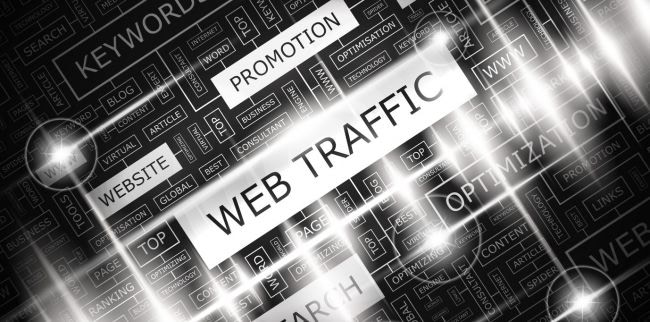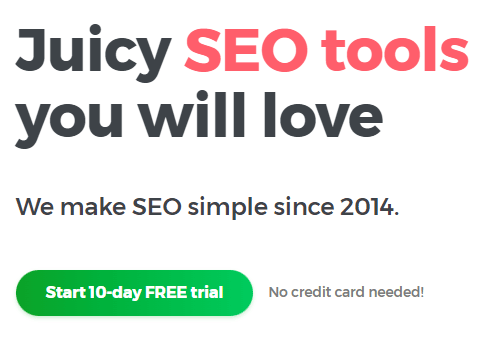PPC vs. SEO: Which Traffic Generation Strategy is Best
SEO and PPC are popular options for businesses looking to increase online visibility and attract customers. But which is the better choice for your business? SEO (Search Engine Optimization) and PPC (Pay-Per-Click) have unique benefits, so deciding which route is best can be challenging.
This article will explore the differences between SEO and PPC in terms of cost, effectiveness, and time investment so that you can make an informed decision about which strategy will work best for your business.
SEO and PPC are two of the most popular traffic generation strategies for businesses, but it can be challenging to decide which one is best. SEO is a longer-term strategy focusing on organic search engine rankings, while PPC offers more immediate results by placing ads at the top of search engine page results.

As a result, SEO requires more time and effort upfront but also has the potential to drive long-term sustained growth.
Related: Backlinks SEO Strategy and Importance.
On the other hand, PPC campaigns are quicker to set up and offer instant results but need continuous management and investment to remain effective. Ultimately, deciding between SEO and PPC depends on your business goals and budget.
Both strategies have advantages and disadvantages, so let’s examine them to help you decide which is best for your business needs.
What are SEO and PPC?
SEO stands for Search Engine Optimization, and PPC stands for Pay-Per-Click. SEO is optimizing a website or webpage to make it more visible on search engine results pages (SERPs). In contrast, PPC involves paying a certain amount each time someone views or clicks on an advertisement.
When deciding between SEO and PPC, businesses must consider their budget, traffic generation goals, desired outcomes, and ability to measure progress. SEO can be time-consuming and expensive, depending on the competition in your industry.

In addition, it requires ongoing maintenance and optimization to stay competitive as SERP rankings frequently change due to algorithm updates from Google. On the other hand, PPC advertising can provide fast results with less effort at a lower cost per click than SEO.
Ultimately, SEO and PPC can effectively generate traffic to your website. SEO is a great long-term strategy that will build brand awareness and organic traffic over time, while PPC can provide immediate results with more control over the budget.
To get the best of both worlds, many businesses use a combination of SEO and PPC strategies to maximize their visibility online and reach their goals.
No matter your approach, having a comprehensive digital marketing plan will help ensure success. With the right combination of SEO, PPC, and other digital marketing channels, you can increase your visibility online and drive more leads to your business.
Cost Comparison of SEO vs. PPC
When considering SEO or PPC for your business, it’s essential to consider the cost associated with each method. SEO requires a substantial investment of time and money upfront for development and ongoing maintenance. SEO costs can vary greatly depending on the project’s complexity and how competitive the keywords you’re trying to rank for are.

On the other hand, PPC campaigns require an initial setup fee and ongoing costs such as bids, ad copywriting, design, etc. However, once these fees are paid, your traffic generation is almost instantaneous. This makes PPC campaigns much more accessible to budget for than SEO since there is no uncertainty about when or if your ROI will be realized.
It’s important to note that SEO often yields long-term results. SEO is a powerful tool for building organic search traffic by optimizing content and improving your website structure. SEO also provides returns over time as you continue to grow in visibility among search engines – something PPC campaigns can never guarantee.
Related: The benefits of content marketing strategies.
Ultimately, the cost comparison of SEO vs. PPC depends on your business goals and budget. For example, SEO offers a higher ROI over the long term but requires an initial investment with no guaranteed timeline for return on investment.
On the other hand, PPC campaigns provide faster results at a predictable cost but may not yield the same long-term success rate as SEO.
Investing in SEO and PPC to maximize their traffic generation efforts may be best for some businesses. However, whichever method you choose, SEO and PPC remain two of the most effective strategies for driving website traffic and generating leads.
Benefits of SEO (Search Engine Optimization)
Search engine optimization (SEO) is a great way to drive organic traffic to your website. SEO helps search engines understand what your website is about, so they can rank it higher in the search results. SEO involves optimizing your site’s on-page and off-page elements, like content, titles, meta descriptions, and backlinks. SEO also focuses on providing valuable content that naturally attracts visitors to your website. SEO strategies require an ongoing effort but can result in long-term success for your business.
Benefits of PPC (Pay-Per-Click Advertising)
PPC or pay-per-click advertising effectively drives immediate targeted traffic from search engine advertisements to your website. PPC ads appear at the top of search engine results pages (SERPs) and are typically triggered by a user’s search query. Therefore, your ad will only be displayed when someone searches for a keyword or phrase that you have specified in your campaign. PPC campaigns require an initial investment but can generate significantly more traffic to your website than SEO alone, providing valuable insights into what your customers are searching for.
How to Choose Between SEO and PPC for Traffic Generation?
Regarding digital marketing, SEO and PPC are the most common options. SEO stands for “search engine optimization” and is a long-term strategy to increase organic search visibility in major search engines like Google. PPC stands for “pay-per-click” and is a short-term strategy that uses sponsored ads or other forms of paid advertising to drive traffic quickly.

SEO and PPC can be effective strategies for driving website visitors when appropriately used, but each has advantages and disadvantages. SEO offers slower yet more sustainable results over time, while PPC can generate almost immediate traffic with a higher cost per click. The choice between SEO and PPC depends on your business goals and budget.
When deciding which method to use, it’s essential to consider the following factors:
- SEO is a long-term strategy that will produce results over time, while PPC is shorter-term but can generate more immediate results.
- SEO generally costs less than PPC in terms of money and time investment, but PPC may be more cost-effective in specific scenarios where only highly targeted traffic is required.
- SEO requires understanding keyword optimization and other SEO techniques, whereas PPC requires knowledge of setting up campaigns and managing bids for keywords.
Ultimately, SEO and PPC are two essential tools for driving website traffic, but it’s important to consider which is right for your business goals and budget.
For example, SEO may be more cost-effective in the long run, while PPC can yield faster results with higher costs associated with each click. You can decide which option best suits your needs by understanding the differences between SEO and PPC.
Related: Advanced SEO Tool Set.
No matter which strategy you choose, SEO and PPC remain essential tools for successful online marketing campaigns. With a well-executed SEO or PPC campaign, businesses of all sizes can benefit from increased website traffic and improved visibility in search engine rankings.
Tips for Implementing SEO or PPC Strategies Successfully
No matter which SEO vs. PPC strategy you choose, optimizing your approach to maximize your business’s potential benefits is crucial. Here are some tips for success:
- Ensure SEO and PPC strategies are part of a comprehensive marketing plan. For example, if you use SEO alone, you may miss out on targeted traffic from paid campaigns.
- Focus on creating quality content essential for SEO rankings and CTRs (click-through rates) with PPC ads.
- Incorporate keywords into SEO and PPC efforts to ensure the right audience sees your content.
- Monitor results regularly and tweak campaigns as needed to optimize performance.
- Experiment with SEO and PPC strategies to see which works best for your business model.
Ultimately, SEO vs. PPC both have the potential to drive traffic and generate leads for your business. However, with the right implementation strategy or digital marketing service, you can ensure that whichever approach you choose is successful.
Common Mistakes When Using SEO or PPC Strategies
One of businesses' biggest mistakes regarding SEO vs. PPC is not taking advantage of both strategies. SEO and PPC are two different ways to generate website traffic, but each has its benefits.
SEO involves optimizing your website for better visibility in organic search engine results. In addition, SEO can bring long-term organic traffic and organic leads for higher conversions. It’s also easier to maintain once you’ve established rankings on popular search engines like Google and Bing.

PPC, short for pay-per-click advertising, involves attracting customers through sponsored ads in search engine results pages (SERPs). This strategy requires an initial investment upfront but offers a significant return on investment if done right.
However, it’s important to remember that PPC campaigns do need to be constantly monitored, as they can become very costly if not managed properly.
When using SEO or PPC strategies, it’s also essential to understand your target audience and their preferences. For example, SEO is an excellent choice for businesses with longer sales cycles, while PPC is better suited for those seeking immediate results. Knowing which strategy works best for your situation can save time and money in the long run.
In the end, PPC vs. SEO comes down to personal preference and the needs of each business. Of course, both strategies have advantages and disadvantages – but companies can ensure maximum visibility and generate more leads by taking an integrated approach that uses both SEO and PPC in conjunction.
Conclusion
Regarding SEO vs. PPC, the best strategy is one that works for your business needs. Understanding the pros and cons of SEO and PPC can help you decide which will bring higher returns for your investment. SEO and PPC can be effective traffic generation, lead generation, and ROI tools if used correctly.
Considering these factors, you can choose your business’s best traffic generation strategy. SEO and PPC both have their unique benefits — so make sure you consider them carefully when deciding which to use. With the right approach, SEO or PPC can help drive targeted visitors to your website and increase sales. Good luck!

